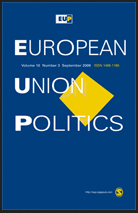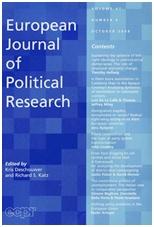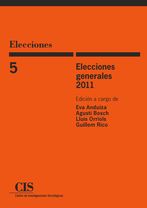Lluís Orriols es doctor en ciencia política por la Universidad de Oxford (Nuffield College). Actuamente profesor en la Universidad Carlos III de Madrid. Sus campos de interés son: opinión pública, comportamiento político y electoral. Sus investigaciones se han publicado en revistas académicas como European Union Politics, Journal of Elections, Public Opinion & Parties, Electoral Studies y European Journal of Political Research. Escribe de forma habitual en El País y en el blog “Piedras de papel” en eldiario.es. Se puede seguir su actividad académica e investigadora en su cuenta de twitter @LluisOrriols
Lluis Orriols got his PhD. in politics at the University of Oxford (Nuffield College). His current position is associate professor at the University Carlos III of Madrid. His research areas are: public opinion, political and electoral behaviour. His research has been published in peer-reviewed journals such as European Union Politics, Electoral Studies, European Journal of Political Research and Journal of Elections, Public Opinon and Parties. Follow his research at the twitter account @LluisOrriols



